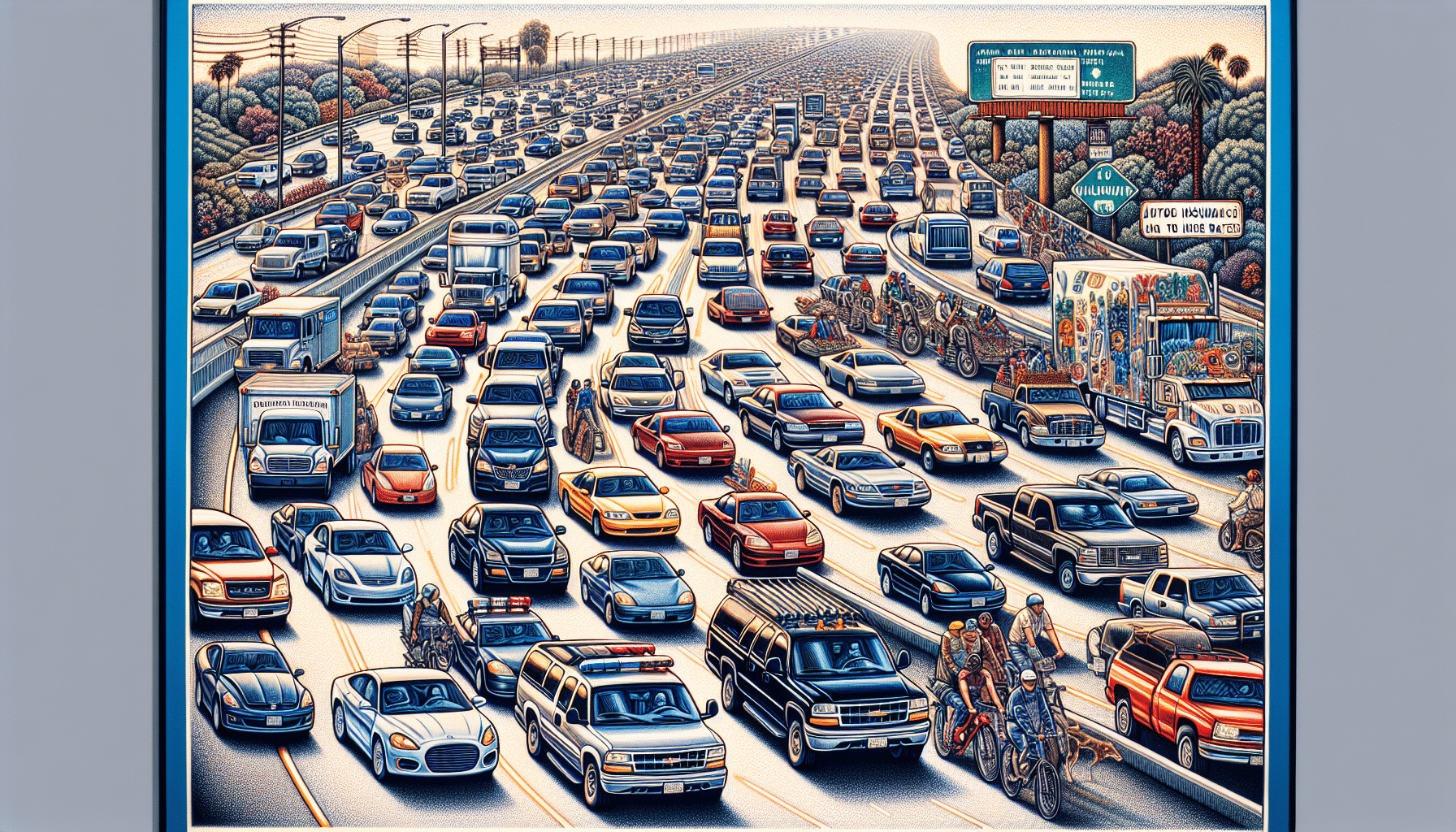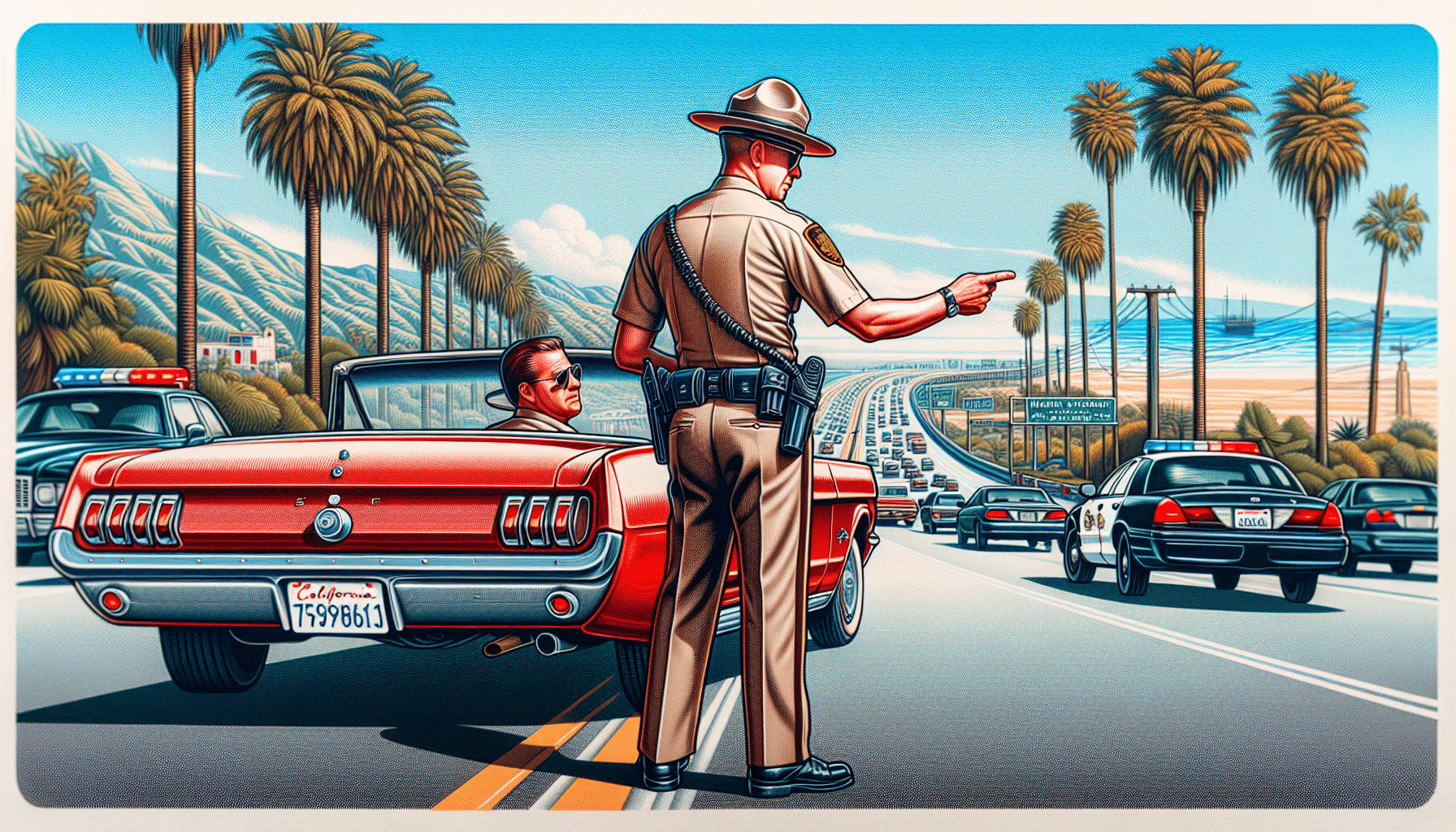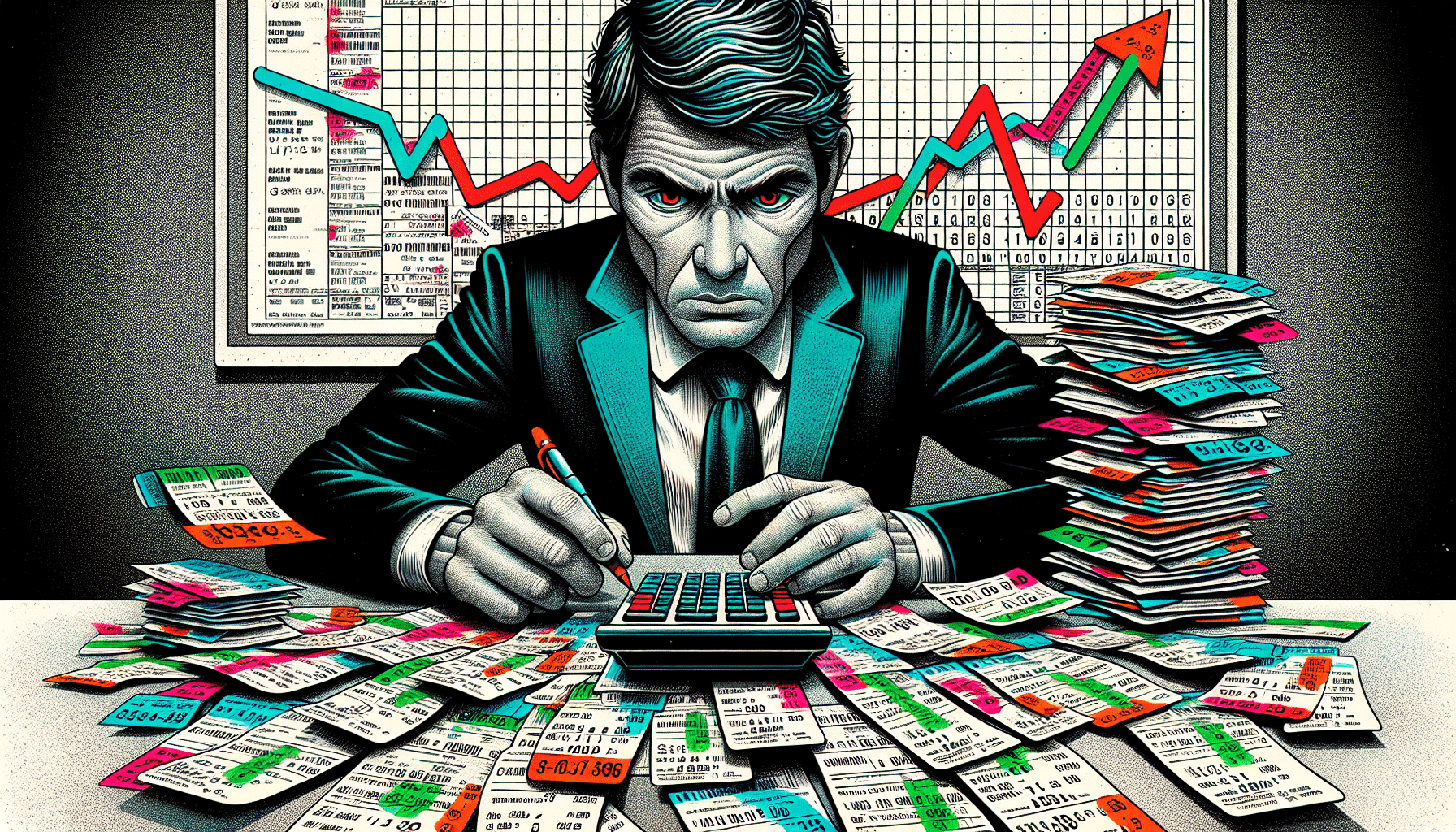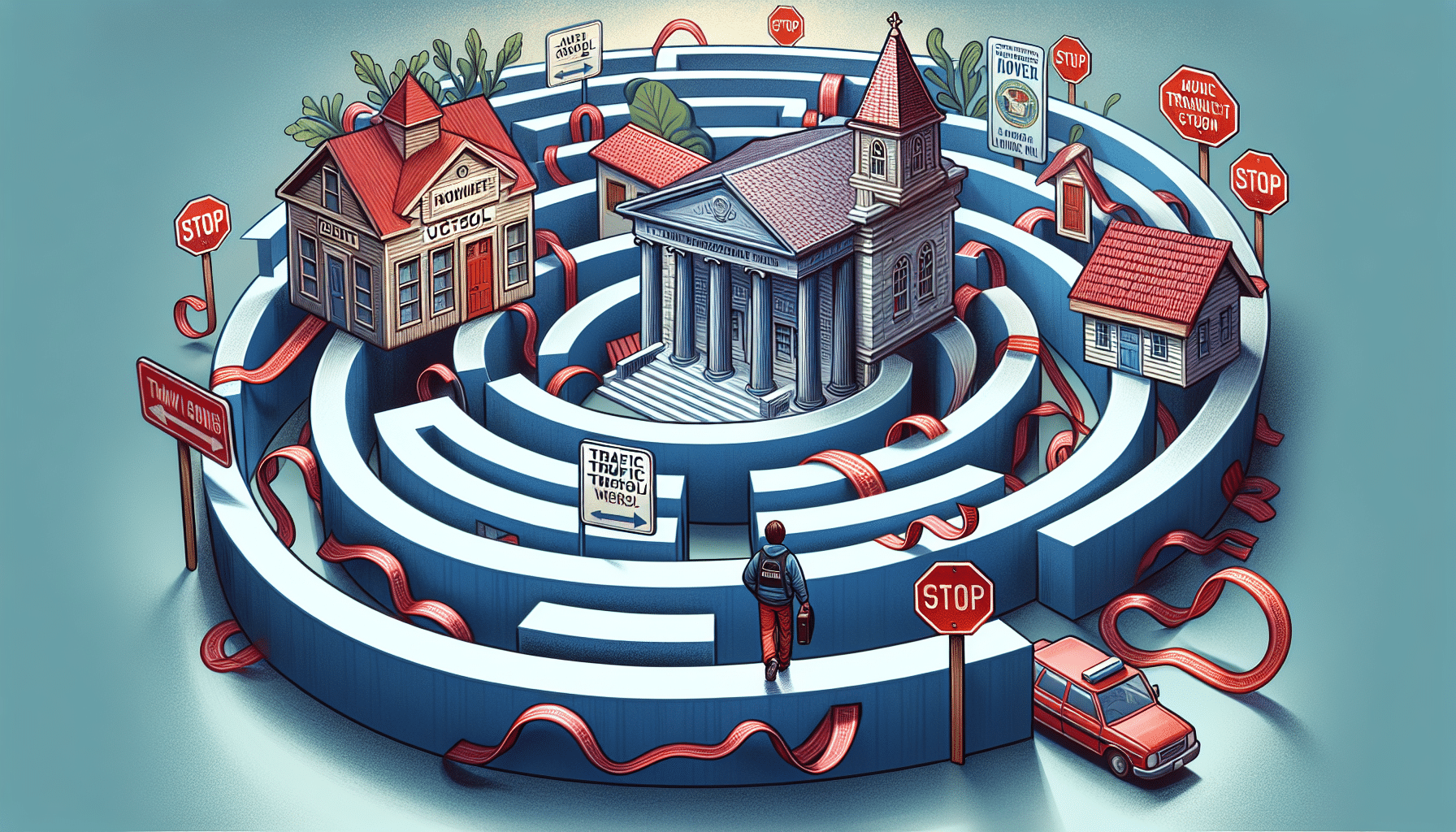When it comes to traffic ticket statistics in California, the numbers tell a compelling story. This article cuts through the complexities, presenting clear data on how frequently tickets are issued, common violations, and the consequences for drivers like you. Explore the effects on insurance rates and discover trends in enforcement and demographics, all backed by the latest statistics.
Key Takeaways
- Speeding tickets are the most common traffic violation in California, entailing hefty fines, insurance rate increases, and a three-year mark on driving records.
- Data reveals demographic disparities in traffic ticketing, with lower-income communities of color being disproportionately affected, and differences based on age, gender, and location.
- Traffic enforcement in California includes diverse strategies and technology use, such as speed camera pilot programs, with an emphasis on safety and reducing bias in stops.
Traffic Ticket Trends in California

In the vast expanse of California, a state known for its diverse landscapes and equally diverse driving conditions, traffic violations are a common occurrence. The California Highway Patrol and local police departments tirelessly monitor roads, highways, and city streets to enforce traffic laws. The most frequently issued traffic ticket in California? Speeding violations.
Speeding is not just a minor indiscretion—it’s a serious safety issue that contributes significantly to traffic-related problems. Every speeding ticket issued is a reminder of the dangers of exceeding the speed limit. However, speeding isn’t the sole issue; there are several other traffic violations that Californians should be mindful of. We will examine the various types of traffic tickets prevalent in the Golden State.
Speeding Violations
Speeding violations are a common headache for California drivers. These infractions can lead to hefty fines, insurance rate increases, and even a mark on your driving record. The fines for speeding tickets vary, depending on how much over the speed limit you were driving and the location of the infraction. For instance, just one speeding ticket for going 20 mph over the limit could land you a fine of around $367.
Getting a speeding ticket doesn’t just hit your wallet. It can also impact your auto insurance premiums. After receiving a speeding ticket, insurance rates can increase, depending on factors such as the severity of the violation and your prior driving record. And don’t think that speeding violation will disappear quickly from your record. In California, it stays there for a whole three years.
DUI Statistics
While speeding may be the most common traffic violation, driving under the influence (DUI) is perhaps the most serious. In a recent year, California saw over 123,000 DUI arrests, including both misdemeanor and felony charges. A startling 73% of those convicted were first-time offenders.
The consequences of drunk driving are severe and often tragic. DUI-related crashes resulted in over 1,000 fatalities in one year, accounting for more than 10% of the nation’s total during the same period. These sobering statistics underscore the critical importance of responsible driving and the harsh consequences of DUI convictions.
Other Common Moving Violations
Beyond speeding and DUIs, California drivers face a variety of other common moving violations, such as:
- Tailgating, which can be a ticketable offense, especially in adverse weather conditions
- Unsafe lane changes, which usually involve rapid lane switches without proper signaling
- Cellphone use while driving
There are other traffic violations too, like passing in no-passing zones, failing to stop for school buses or pedestrians, and using a cell phone without a hands-free setup. For instance, failing to stop at a stop sign, one of the most common violations, carries a base fine of $35. These infractions may seem minor, but they can have significant consequences, including fines, points on your driving record, and increased auto insurance premiums.
Demographics and Traffic Tickets

Having understood the common traffic violations, it’s time we shift our focus to the influence of demographics. Age, gender, and location significantly influence the likelihood of receiving traffic tickets in California. These factors also affect auto insurance rates.
A report by nonprofit SPUR uncovered a troubling trend: traffic ticket penalties disproportionately affect lower-income communities of color in California. These disparities underline the intricate dynamics of traffic violations and their extensive effects. We will further investigate the impact of age, gender, and location on traffic tickets and auto insurance rates.
Age and Traffic Violations
Age has a significant impact on traffic violations. Drivers between the ages of 50 and 64 are the most likely to have received a speeding ticket, with a significant percentage reporting at least one ticket for speeding in their driving history. However, it’s the 30 to 49 age bracket, particularly those with household incomes over $75,000, that constitutes the demographic most frequently cited for traffic tickets.
Interestingly, older novice drivers have a higher rate of traffic violations than younger novice drivers. This could be due to increased driving frequency or perhaps less familiarity with current traffic laws. These trends underscore the importance of ongoing driver education and awareness, regardless of age.
Gender and Traffic Violations
When it comes to gender, male drivers of all ages receive at least 50% more speeding tickets than female drivers. The gap is even more pronounced among drivers over 55, with male drivers ticketed for speeding 200% more often than their female peers.
These statistics suggest that men are statistically more likely to be ticketed than women during traffic stops. While the reasons for this disparity are complex and multifaceted, it’s clear that gender plays a significant role in traffic violation trends.
Location and Traffic Violations
Where you live in California significantly affects your auto insurance rates. Premiums are calculated based on various regional factors, including:
- Population density
- Traffic volume
- Accident frequency
- Crime rates
Your driving patterns, including where you commonly drive, the time of day you’re on the road, and the overall amount of driving you do, also influence your insurance premiums from multiple companies.
The make, model, and year of your vehicle are also considerations in determining your auto insurance rates. Driving a new, expensive sports car will likely incur higher insurance costs compared to a less flashy, older model. So, whether you’re cruising down the Pacific Coast Highway in a sleek convertible or navigating the urban jungle of downtown LA in a compact sedan, your location and vehicle choice have a substantial impact on your driving record and auto insurance rates.
Law Enforcement Practices and Traffic Tickets

Traffic enforcement plays a crucial role in maintaining road safety in California. Law enforcement officers are tasked with ensuring compliance with traffic laws, enhancing traffic safety, and issuing tickets for traffic violations. However, the approach to traffic enforcement varies by location and can be influenced by several factors.
San Francisco, for instance, focuses on improving safety for pedestrians, cyclists, and drivers. The city’s police department actively works towards reducing traffic safety incidents through enforcement actions, including traffic ticketing. But enforcement practices can sometimes be controversial, such as pretext stops, where officers stop drivers for minor equipment violations that are unrelated to road safety. Let’s delve deeper into these practices and their impact.
Pretext Stops
Pretext stops are a contentious issue in California. These stops, often for minor equipment violations like an incorrectly affixed license plate, are unrelated to road safety. However, they can lead to further intrusive actions, such as searches, detentions, or handcuffing, particularly among Black and Latino drivers, despite the absence of enforcement or discovery.
Data suggests that these racial disparities in traffic stops may be due to bias, indicating that these demographics are disproportionately affected by pretext stops. To address this disproportionality and the issues associated with pretext stops, there have been proposals to end such stops, particularly those made for minor equipment violations, and reduce associated fines and fees.
Traffic Enforcement Strategies
California employs various traffic enforcement strategies to improve road safety. For instance, the state imposes increased vigilance and fines in critical areas such as construction zones, residential neighborhoods, and school zones. Additionally, officers are required by law to state and document the reason for traffic or pedestrian stops prior to questioning or issuing citations.
Changes in policy, such as those implemented by the Los Angeles Police Department, have resulted in fewer stops for minor violations and a slight increase in discovered contraband, thereby improving the quality of stops. California’s approach to traffic enforcement adapts to diverse transportation needs, including vehicles, motorcycles, bikes, pedestrians, and public transport.
Impact of Technology on Traffic Enforcement
Technology has significantly impacted traffic enforcement in California, with the state implementing a speed camera pilot program in several major cities. This marks the first time California has permitted the use of speed cameras to enforce traffic laws. Unlike previous red light camera programs, violations captured by speed cameras carry no criminal penalties and don’t add points to a driver’s license.
The program also allows fines to be reduced based on income levels, offering an 80% reduction for individuals below the poverty line and a 50% reduction for those earning up to 250% above the poverty level. However, concerns have been raised about the potential for increased surveillance and the disproportionate impact of automated enforcement on economically vulnerable communities.
Financial Implications of California Traffic Tickets

Traffic tickets in California are more than just a nuisance; they carry significant financial implications. High traffic-violation fees can create substantial financial challenges, particularly for lower-income individuals, forcing them to choose between ticket payments and essential needs such as utilities, food, or clothing. Ignoring a traffic ticket can lead to a default judgment of guilt, additional fines, and marks on the driver’s DMV record.
Local governments in California rely on revenue from traffic fines to offset declines in tax revenue. This reliance on fines for financial planning illustrates the far-reaching implications of traffic ticket revenue beyond road safety. We will further examine the financial repercussions of traffic tickets, encompassing:
- fines
- fees
- insurance rate increases
- methods to mitigate such costs.
Fines and Fees
Traffic violations in California come with considerable fines and fees. Here are some examples:
- The base fine for failing to stop at a stop sign is $35
- Speeding fines range between $35 and $100
- These fees can increase if you have a prior traffic conviction in the last 36 months
- Total costs for traffic violations such as speeding can range from $238 to $1,000
- Specific instances like speeding 16-25 mph over the limit in a construction zone can cost $525.
Failing to pay fines on time may lead to additional penalties, such as a civil assessment fee added to the original fine, and potentially having the case handed over to a collections agency. However, drivers can negotiate their traffic ticket fines, seeking reductions in the fine amount or permission to perform community service, especially if they are experiencing financial hardship.
Insurance Rate Increases
Traffic tickets don’t just result in fines; they can also lead to a spike in auto insurance rates. A single speeding ticket typically increases auto insurance rates by 40% in California, with the average yearly cost for such drivers being around $3,790. The situation worsens with multiple speeding tickets, leading to an increase in car insurance costs of over 100%.
However, there are ways to mitigate these increases. After receiving a speeding ticket, California drivers can take steps to lower their insurance rates by:
- Shopping around for better quotes
- Adjusting deductibles
- Reviewing their annual mileage
- Attending traffic school.
Strategies to Reduce Costs
Despite the financial burden of traffic tickets, there are strategies to reduce costs. You can negotiate the terms of your traffic ticket fines, seeking reductions in the fine amount or permission to perform community service, particularly if you’re experiencing financial hardship. Additionally, drivers can ensure they meet payment deadlines by requesting extensions from the court, enabling them to manage their financial obligations without incurring additional penalties.
Another strategy is to shop around for better insurance quotes after receiving a speeding ticket. You can also consider adjusting your deductibles, reviewing your annual mileage, or even attending traffic school to lower your insurance rates. These strategies can help mitigate the financial impact of a traffic ticket in California.
Navigating the Traffic Ticket Process in California

So, you’ve received a traffic ticket in California. What happens next? Failing to appear or take action by the citation’s due date can result in a driver’s license suspension by the California DMV. However, drivers can request a 30-day extension for their court appearance or due date via online systems or by contacting the court’s office.
Whether you decide to pay the fine, contest the ticket, or attend traffic school, it’s crucial to understand the process. We will examine each of these alternatives and detail the involved procedures.
Paying the Fine
Paying the fine for a traffic ticket in California can be done in several ways: online, by mail, in person, or over the phone. Courts such as San Bernardino accept payments by cash, checks, money orders, and major credit or debit cards. However, failing to pay the fine by the due date can result in extra penalties, such as a civil assessment fee added to the original fine, and potentially having the case handed over to a collections agency.
When a traffic violation occurs, the court issues a courtesy or reminder notice outlining the details of the fine, payment or contesting instructions, and the payment due date. If you’re struggling financially, you may request reduced fines based on your ability to pay using MyCitations or Form TR-320.
Contesting a Traffic Ticket
If you believe the ticket was unjustly issued, you can choose to contest it. To do so, you must inform the court of your intent to plead not guilty and request a trial, which can be done either in person at an arraignment or by scheduling a court trial date. During the arraignment, you’ll hear your charges, be advised of your legal rights, and will be asked to plead guilty, not guilty, or no contest.
A court trial involves a judge and mandates the presence of the officer who issued the citation, providing a platform for you to challenge the ticket in person on your court date. Alternatively, trial by written declaration offers an opportunity to contest the traffic ticket by submitting a written defense, which is then reviewed by a judge along with the officer’s statement.
Attending Traffic School
Attending traffic school in California can provide the following benefits:
- Prevent points from being added to your driving record
- Avoid increases in auto insurance rates
- Result in a ‘confidential conviction,’ where the violation is registered without points affecting the driving record.
Not everyone is eligible for traffic school. You must have a valid driver’s license and a citation for a non-commercial vehicle, and you must not have attended traffic school within the past 18 months. However, offenses involving alcohol or drugs do not qualify for the traffic school option. To attend and complete traffic school, drivers must verify their eligibility with the court and pay the associated fees to both the court and the traffic school, even if the offense occurred in a commercial vehicle.
Summary
Navigating the complex landscape of California’s traffic ticket system can be daunting. However, understanding the trends, financial implications, and the process can significantly alleviate the stress associated with traffic tickets. From the most common violations like speeding to the impacts of demographics and law enforcement practices, we’ve explored the multifaceted nature of traffic tickets in the Golden State.
Remember, the consequences of a traffic ticket extend beyond a simple fine. They can impact your driving record, auto insurance rates, and even have broader societal implications. Whether you’re a seasoned California driver or new to the roads, staying informed and vigilant can help you avoid the pitfalls of traffic violations and navigate the streets of California with confidence.
Frequently Asked Questions
What’s the most common traffic violation in California?
The most common traffic violation in California is speeding. It’s important to adhere to speed limits to ensure road safety.
How does a traffic ticket affect my auto insurance rates?
A single speeding ticket can increase your auto insurance rates by about 40% in California. This increase is significant and can impact your overall insurance costs.
What are pretext stops, and how do they impact communities of color in California?
Pretext stops, which are traffic stops made for minor equipment violations, disproportionately affect Black and Latino drivers in California, often leading to more intrusive actions during traffic stops. This can have a significant impact on these communities.
How can I contest a traffic ticket in California?
To contest a traffic ticket in California, you need to inform the court of your plea and request a trial, which can be done at an arraignment or by scheduling a court trial date. There is also the option of a trial by written declaration, where you submit a written defense.
What is the benefit of attending traffic school in California?
Attending traffic school in California can prevent points from being added to your driving record and help avoid increases in auto insurance rates. This can be beneficial for maintaining a clean driving record.




